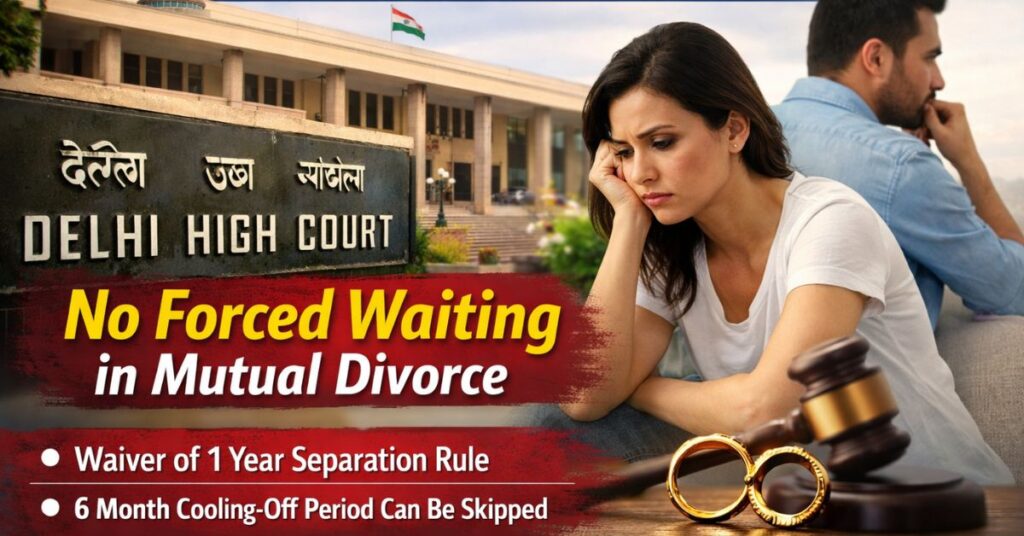Introduction
In a recent judgment, the High Court of Kerala brought to light the matter of ‘Waive Off Cooling Period in Mutual Divorce’ under under Section 10A of the Divorce Act, 1869, was brought to light. The case involved a husband, Mr. Tomy Joseph, and his wife, Mrs. Smitha Tomy, both Christians, who had jointly filed a divorce petition based on mutual consent. The petition sought a decree of divorce under Section 10A of the Divorce Act, 1869. However, the Family Court dismissed their application to waive off the six-month cooling period, leading to a challenge in the High Court through O.P.(FC) No.577 of 2018.
The Judgment
In the judgment delivered on 30th October 2018 by the Honourable Justices C.K. Abdul Rehim and R. Narayana Pisharadi, the court considered whether the cooling period mentioned in Section 10A(2) of the Divorce Act, 1869, could be waived off, similar to Section 13B(2) of the Hindu Marriage Act, 1955. They relied on the Supreme Court’s decision in Amardeep Singh v. Harveen Kaur (AIR 2017 SC 4417), which dealt with the cooling period in the context of Section 13B(2) of the Hindu Marriage Act, 1955.

Guidelines for Discretionary Waiver
In the Amardeep Singh case, the Supreme Court held that the cooling period of six months mentioned in Section 13B(2) of the Hindu Marriage Act is not mandatory but directory. It means that the court has the discretion to waive off the cooling period under certain circumstances after considering specific conditions:
- The statutory period of six months specified in Section 13B(2) has already expired before the first motion.
- All efforts for mediation and reconciliation have failed.
- The parties have genuinely settled their differences, including alimony, child custody, or other pending issues.
- Prolonging the waiting period would only cause further agony.
The High Court of Kerala adopted the same reasoning and concluded that the dictum laid down by the Supreme Court in Amardeep Singh is applicable to a petition for divorce filed under Section 10A of the Divorce Act, 1869, as well. The court further opined that divorce by mutual consent is a secular concept, and there should be no discrimination based on religion in granting this relief.
Conclusion
This judgment delivered by the Hon’ble High Court of Kerala on the issue of ‘Waive Off Cooling Period in Mutual Divorce’ provides clarity and equal treatment to couples seeking divorce by mutual consent, regardless of their religion. By following the principles laid down by the Supreme Court, the court upheld the spirit of a secular society and ensured that parties could dissolve their marriages amicably without undue delay.
It is essential to understand that this judgment does not undermine the significance of the cooling period but rather emphasizes the importance of individual circumstances and the possibility of granting relief in exceptional situations. As society continues to evolve, it is vital for legal systems to adapt and ensure fairness for all its members, regardless of their religious backgrounds.



